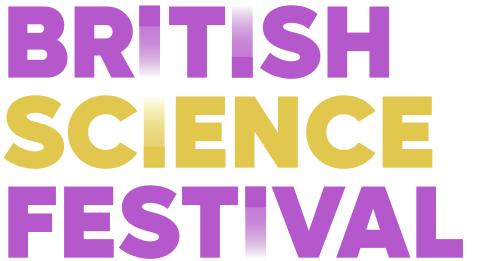Taking place from 10-14 September 2025, this year’s British Science Festival will be hosted in partnership with Liverpool John Moores University and the University of Liverpool.
Events take place in venues right across the city centre – from cultural landmarks like The Bluecoat and the Museum of Liverpool, to creative spaces such as The Black-E, Quirky Quarter, LEAF and Kazimier Garden.
With more than 100 free talks, workshops and drop-in activities, there’s something for everyone to discover.
From fungal galaxies to berry-powered solar cells, this year’s programme is blooming with plant-themed events.
Explore flora through art and photography, uncover Liverpool’s urban wild side, trace the medicinal and mindful uses of plants past and present, and investigate the surprising ways they can both protect – and sometimes endanger – our health.
Fungal galaxies: journey inside plants
Witness fungi as never before in this photography exhibition that unearths the hidden beauty of microorganisms living inside plants. Researcher Diego Dylan Bianchi from Trinity College Dublin has captured dreamlike images of filamentous fungi – moulds that inhabit everything from roots to seeds.
(Exhibit – All week)
Tracking Liverpool’s wild side
How much nature have you noticed lately? This drop-in activity by Liverpool John Moores University challenges you to track down the city’s hidden flora and fauna. Collect an ID sheet, head outside, and add your discoveries to the leaderboard – who will spot the most species?
(Drop-in – Wednesday 10 September – 12:00-17:00)
Medicinal and mindful: Liverpool’s botanical history
Step back in time in this workshop, discovering how Victorians identified and used medicinal plants. Explore illustrated drawings and herbal artefacts before creating your own Victorian powders from medicinal flora. Led by the Mindful Garden from Liverpool John Moores University, this event uses creativity to promote the preservation of these medicinal plants.
(Workshop – Friday 12 September – 12:00-13:00)
City greens
Join researchers from Liverpool John Moores University and the University of Liverpool for this interactive drop-in exploring urban food growing. Discover the secrets of vertical farming, the power of worms, and the science of plant pigmentation and photosynthesis – and unearth how urban agriculture benefits both people and planet.
(Drop-in – Friday 12 September 12:00-17:00)
Medicinal and mindful: Liverpool’s botany of today
Explore cutting-edge plant research used in drug discovery during this workshop. Zoom into microscopic cell structures, conduct chemical reactions, and identify the medicinal properties of leaves. Led by the Mindful Garden from Liverpool John Moores University, this event uses creativity to promote the preservation of these medicinal plants.
(Workshop – Saturday 13 September – 11:00-12:00 – This event is now sold out)
Medicinal and mindful: Liverpool’s botanical future
Unearth the conservation efforts of herbariums – libraries of pressed plants used in future research. Learn the delicate art of mounting dried plants to preserve species for generations to come. Led by the Mindful Garden from Liverpool John Moores University, this event uses creativity to promote the preservation of these medicinal plants.
(Workshop – Sunday 14 September – 13:30–14:00 – This event is now sold out)
Berry bright future
Could berries power the future? This drop-in session with researchers from Newcastle University showcases sustainable Berry Solar Cells – low-cost energy sources that harness the properties of berry juice to potentially reduce reliance on batteries and mined metals.
(Drop-in – Sunday 14 September – 11:30-17:00)
Nature’s perils: plants and pandemics
The world around us is home to many deadly and delightful plants and microbes – some can be lifesaving, being used to treat diseases, others can be lethal. This drop-in session with researchers from the University of Liverpool’s Faculty of Health and Life Science and the Pandemic Institute reveals how scientists study dangerous germs and plants to protect global health.
(Drop-in – Sunday 14 September – 11:30–17:00)
Is there really a ‘wood wide web’?
The idea that trees share food, water and information through a hidden network has become popular – but is it true? In this talk, plant–fungal expert Katie Field from the University of Sheffield takes a critical look at the so-called ‘wood wide web’ and what it reveals about how trees live and connect.
(Talk – Sunday 14 September – 15:30-16:30)
Visit www.britishsciencefestival.org for the full British Science Festival programme and ticket booking
